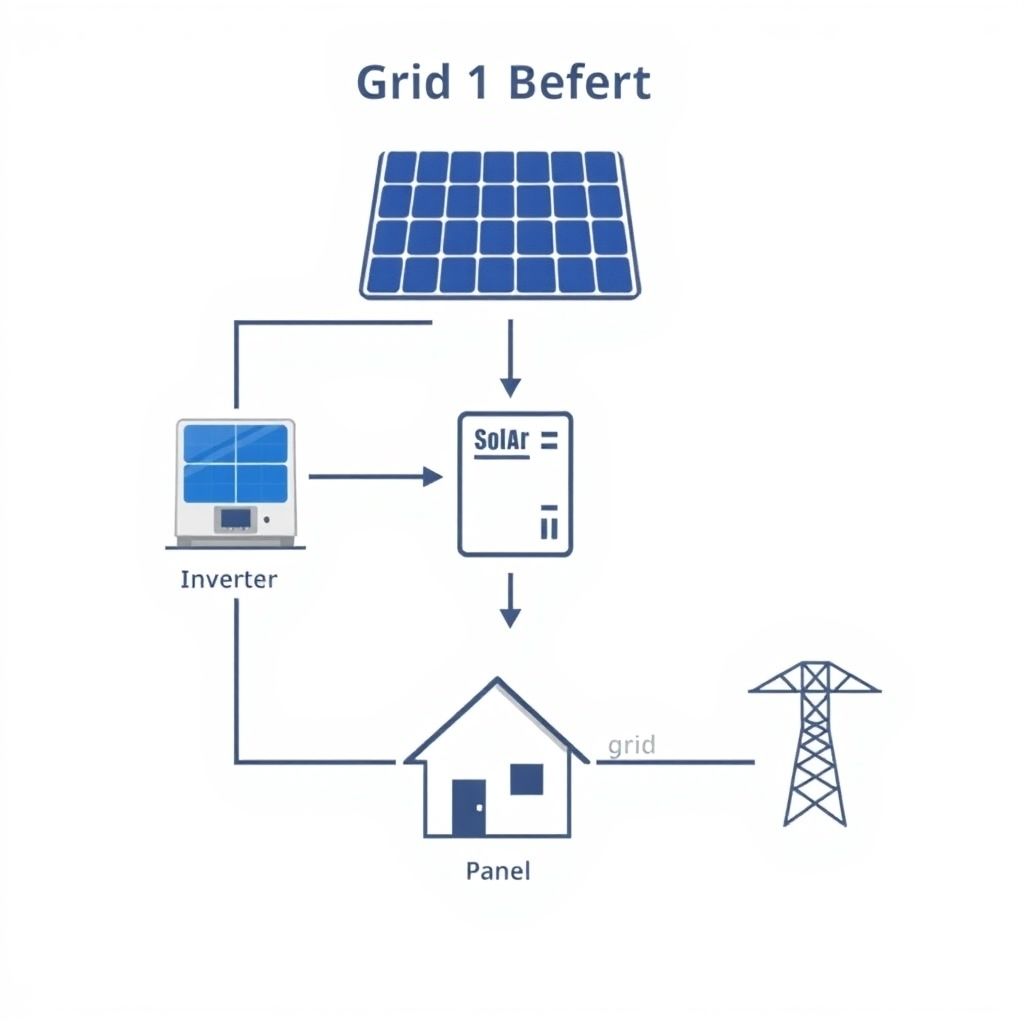Finding Your Perfect Solar Solution
Every business and lodge has unique energy needs. Understanding the different types of solar systems helps determine the most effective and cost-efficient solution for you:
Grid-Tied Solar Systems

Ideal for businesses operating primarily during daylight hours, or anyone connected to the grid looking to reduce bills. Solar panels generate electricity that directly powers your needs, reducing the amount you draw from Eskom or your municipality. Excess power generated *can* sometimes be fed back (subject to local rules).
Best for: Factories, offices, retail stores, schools, day-use facilities.
Pros: Lower initial cost (no batteries usually), simple setup, significant bill reduction.
Cons: Provides no power during grid outages (load shedding) unless paired with a battery (becoming a Hybrid system).
Off-Grid Solar Systems
Designed for complete energy independence, essential for locations with no grid access or highly unreliable supply. Systems include solar panels, charge controllers, a battery bank for energy storage (night/cloudy days), and an inverter to convert DC power to usable AC power. Careful sizing based on load is critical.
Best for: Remote lodges, game farms, rural homes, telecoms towers, off-grid communities.
Pros: Complete independence from grid costs and outages, reliable power in remote areas.
Cons: Higher initial cost due to batteries, requires careful energy management, battery lifespan consideration.
Hybrid Solar Systems
Combines the features of grid-tied and off-grid systems. You are connected to the grid but also have a battery bank. Solar power is used first, excess charges the batteries, and then can potentially be fed to the grid. Batteries provide backup during load shedding and can be used to avoid peak tariffs. Offers maximum flexibility.
Best for: Businesses needing 24/7 reliability, lodges wanting backup and cost savings, homes seeking resilience.
Pros: Energy security during outages, potential for peak shaving savings, utilizes solar energy efficiently.
Cons: More complex and costly than grid-tied, battery sizing is important.
Which is Right for You?
The best solar solution depends heavily on your specific energy consumption profile, location, available space (roof or ground), budget, and goals for reliability vs. cost saving. A professional assessment is highly recommended.
